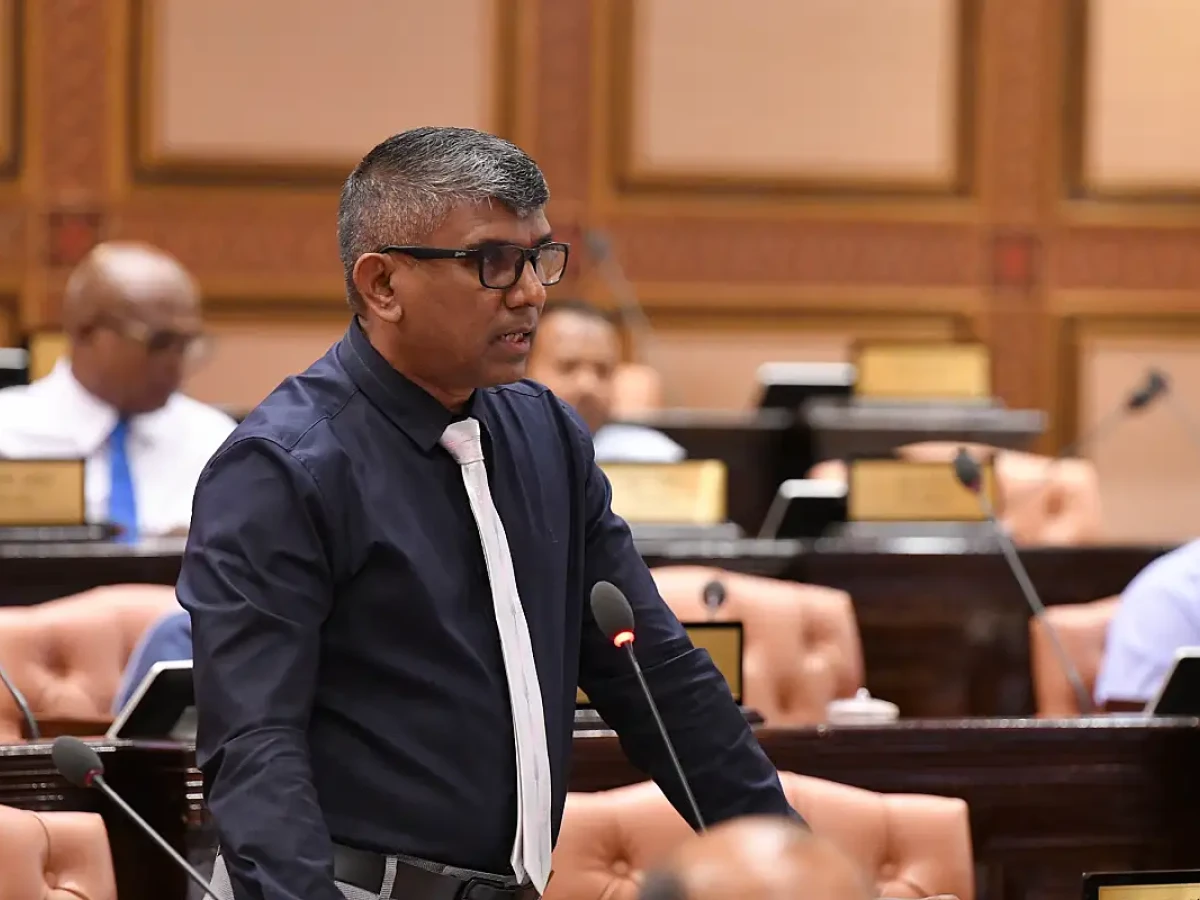
Media bill vital to save society, MP Hannan says
Hannan voiced frustration over what he perceives as media irresponsibility, citing instances where false information had personally impacted him.
Thulhaadhoo MP Abdullah Hannan Aboobakur said on Wednesday that his media commission bill is a necessary step to curb corruption and promote responsibility in the media.
According to Hannan, the proposed bill is designed to ensure that media regulation is firmly within the purview of the government or the president, consolidating oversight mechanisms that he deems essential for safeguarding societal integrity.
The ‘Maldives Media and Broadcasting Commission Bill’ aims to dissolve the current regulatory bodies—the Maldives Broadcasting Commission (Broadcom) and the Maldives Media Council (MMC)—replacing them with a unified entity under governmental oversight.
This move has been met with significant criticism from various stakeholders, including the Maldives Journalists’ Association (MJA), which expressed concerns about the potential impact on press freedom and journalistic independence.
When questioned about the objectives and details of the bill, Hannan remained steadfast in his defense. “All the details will be in the bill,” he stated, deflecting direct queries and suggesting that any apprehensions were unwarranted. He emphasized that fines for media misconduct would only be imposed after a series of preliminary measures, underscoring that responsible journalism would negate any punitive actions.
Hannan voiced frustration over what he perceives as media irresponsibility, citing instances where false information had personally impacted him. “For example, today a media outlet changed my party affiliation,” he said. “I represent four thousand people. They publish anything they want without accountability. Who will take responsibility?”
The MP argued that unchecked dissemination of falsehoods fosters societal corruption and deception. “It really worries me,” he said. “Society is becoming corrupt with more lies and fraud. Somebody needs to fix these things. Everyone needs to be responsible.”
Critics of the bill, including media watchdogs and journalist associations, have voiced their apprehension that such legislation could stifle free speech and place undue power in the hands of the government.
President Mohamed Muizzu has publicly shared his reservations, stating on social media platform X (formerly Twitter) that he does not support the idea of government control over the media.
Hannan, however, dismissed these concerns as exaggerated. “People will have concerns no matter what bill is proposed,” he remarked.
He maintained that the bill was drafted independently, without government interference, and was based on prior legislation.
When asked whether consultations with journalists or other media stakeholders were conducted during the drafting process, Hannan affirmed his independent approach.
“I am an MP. I act very independently. I am an independent person, independent and still am,” he said, despite aligning with the government’s stance in parliamentary debates.
Hannan also defended the bill’s emphasis on journalistic responsibility as part of upholding the rule of law.
“It is everyone’s responsibility to put the interest [of society] first,” he asserted.
He further argued that the mental and emotional consequences of irresponsible reporting can be severe. “I see people slaughtering each other for the sake of freedom. Here, you are not physically stabbing someone, but the impact on a person’s mind and heart is too great,” he said.
Despite mounting opposition, Hannan indicated no plans to withdraw the bill. “No, no, this is a lot of work. I really like the way this [bill] is now,” he stated.




